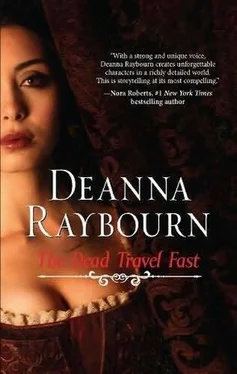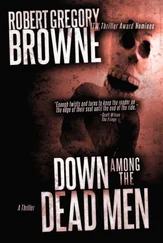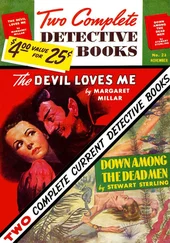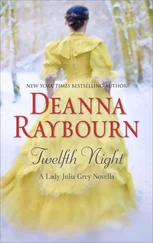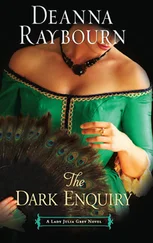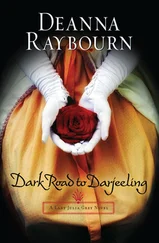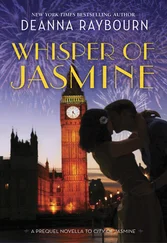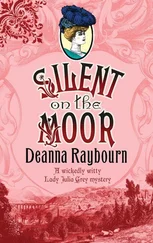She flew at me then, cursing, but the count had anticipated her, and raised his walking stick to block her. Florian darted forward, but the count waved him off.
“Cosmina, sit. You will not respond to Miss Lestrange’s provocations,” he said coolly. But even as he said the words, he gave me a nod, almost imperceptible, and I continued on.
“And you know what you are as well, do you not? You know the truth about your mother. She is not dead. She lives on, completely mad, locked in the same asylum where she has been since you were a small child. You know madness runs in the blood and you have waited for it to come for you.”
She gave me a basilisk stare, as if she wished the flesh would melt from my bones, but I dared not stop.
“But did you know that you are Dr. Frankopan’s child? He told me himself last night. You are his natural daughter, no more a legitimate Dragulescu than the child Aurelia carried. You do not belong here.”
The words poured from my lips, goading her to some reaction that would betray her villainy. I laid at her door all of the crimes I believed her guilty of, but to my astonishment, it would be the most venal of them that broke her. I raised again the subject of my rosary. “It was my mother’s. Why would you take it from me?”
“Because it was the only thing I had of yours,” she cried, breaking her reserve at last. “That was the day that Fraulein Möller made such a pet of you, and you spent ages discussing the poetry of Heine with her, do you remember? But it was supposed to be our outing, our day. And you neglected me to sit and talk about poems with that stupid schoolmistress.”
“And you took the rosary to punish her?” the count asked quietly.
“No, to make her look at me!” Cosmina returned, her eyes bright and lit with some unnatural fire. “We were friends and she ought not to have ignored me. When she thought the rosary was lost, she noticed me again. We were friends, and women must cling together in this world, for men are our destruction,” she said, turning to the countess, pleading with her aunt to understand.
“And the letter?” I urged.
The beautiful complexion flushed, a stain of anger spreading across her cheeks. “Andrei should not have written it. It was wrong of him to write it. I had to take it away,” she said stubbornly.
“And my son?” the countess asked, her voice even and low.
Cosmina said nothing, but the countess came at her, taking her by the shoulders and imploring her, “Tell me you did not harm my son. What did you do to him?”
Under her aunt’s careful attention, Cosmina broke into sobs and the countess’s hands fell away. “I did not think you capable of that, child. Not my Andrei. My son,” she murmured, collapsing into a chair, her shoulder heaving as she coughed into her handkerchief.
Cosmina gathered her composure. She took a great, shuddering breath and squared her shoulders. She looked around the room, collecting us, and then spoke, slowly and distinctly. “Andrei is like a brother to me, and I would sooner die than harm a hair of his head. There is a strigoi that walks this place, and he came to claim his own son. You know this,” she said, once more casting entreating eyes upon her aunt. “You know that Count Bogdan walks, that he demands the life of his son. You know these things. Why do you doubt me?” she asked, her tone persuading now.
The countess half turned from her. “I do not know what to believe.”
“Believe she is a murderess,” I said firmly.
It was this last that prodded Cosmina beyond endurance, for she flew at me again and this time the count surged from his chair, rising up to put himself between us and shielding me from her with his own body. “Cosmina!” he said sharply.
She paused, her hands outstretched, curled like claws, her eyes avid and hungry for vengeance. The count flicked one finger and Tycho sprang between them, baring his teeth at Cosmina, a low growl rolling in his throat.
“A word from me and he will tear out your throat,” the count told her softly.
She darted her eyes to Tycho and then to me, perhaps gauging the distance between us and wondering if she could reach me before the dog reached her.
But she hesitated a moment too long, and in that second the count assumed control. He issued a command to Charles and Florian, never taking his eyes from Cosmina.
“Lock her in the garderobe,” the count instructed them.
“No!” she cried. “I cannot stay there. That is where she died! She bled there,” Cosmina protested, but the count would not be moved.
She twisted and writhed at first, and I watched Charles’s expressionless face, knowing he hated what he must do. But neither he nor Florian faltered, and when Cosmina realised they would give no quarter, she calmed herself and allowed them to lead her docilely from the room. They removed her to the cold and comfortless garderobe, and as they did, the countess sat, ashen-faced, watching the devastation of her favourite niece. The two women exchanged wordless glances, and there was a froideur between them, a new coldness born of the countess’s doubts and Cosmina’s denials. I wondered if it would ever be mended, or if Cosmina had lost her aunt’s affections forever.
We fell to silence until Charles and Florian returned, pale and unhappy. Charles gave a short nod to the count to indicate that his orders had been carried out, but Florian merely stood, his shoulders bowed, his woeful poet’s eyes fixed upon the floor.
The countess turned to me. “I will never forgive you for this,” she said clearly. Her eyes were dry and her expression stony. She was a woman who would hate implacably, and I knew I had made an enemy that night.
“I am sorry, madame,” I said, and I meant it, for I had loved Cosmina too, and the revelations of the past day had been difficult to bear. I had not liked the count’s methods, but I had understood them. Cosmina had to be shown for what she was, and her unnatural rages had persuaded everyone save the countess.
“Cosmina has stolen, and for that she must be punished. But I believe her. She is not responsible for the darkest deeds in this castle. It was the strigoi,” the countess said stubbornly. “Count Bogdan walks this place, and he will come for us all.”
Upon those chilling words we parted, and although the count gave me no looks of significance, no gesture of collusion, when he appeared in my room, I was not surprised to see him. He came to me by way of the tapestried stair, and stood, saying nothing but opening his arms in invitation. I went to him, putting my head to his shoulder as his good arm came to embrace me.
“I feel a thousand years old,” he said, murmuring the words into my hair.
“What will become of her?”
“She attempted my life, and very likely killed Aurelia as well. She must be put away.”
I drew back, searching his face. “You mean she will be gaoled? She will hang then.”
“No,” he said sharply. “I will not have the scandal of it touching my family. What Dr. Frankopan told you is true. Her mother is unwell, a weakness in the head and nerves. She has been locked away since Cosmina was an infant. I know Frankopan and others besides believe such weaknesses may be carried in the blood. If that is true, it is not her fault. She is a flawed and unnatural thing, but not evil.”
“She has killed,” I said, even then trying to convince myself that the girl I knew could have done such deeds, worked them out, coldly and maliciously, determined to end the lives of those she decided were unfit to live. “But it would give me no pleasure to see her hang for her crimes.”
“I knew her as a child,” he said, something almost pleading in his eyes as he willed me to understand. “I cannot turn her over to them. They will see only the deed and not the lost child. Even now I pity her.”
Читать дальше
Конец ознакомительного отрывка
Купить книгу
